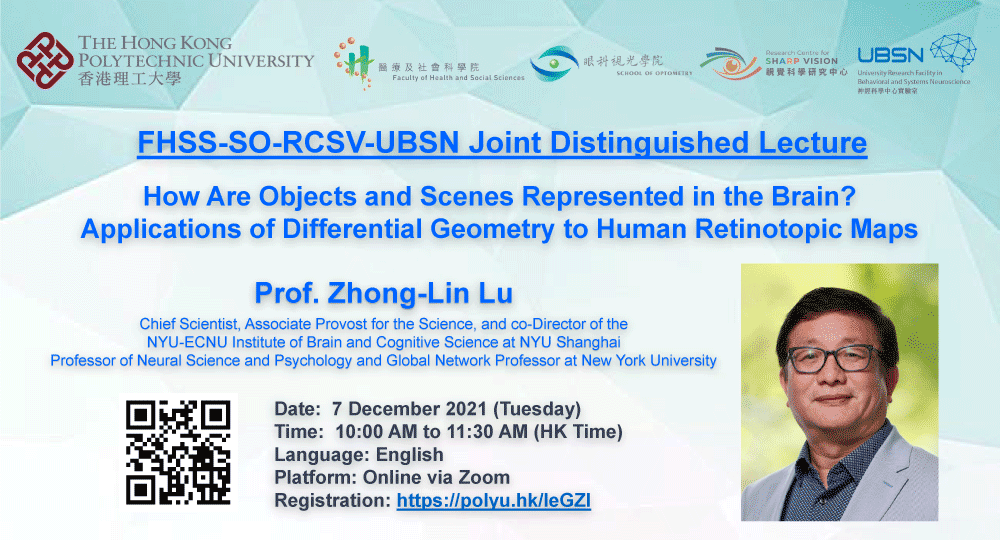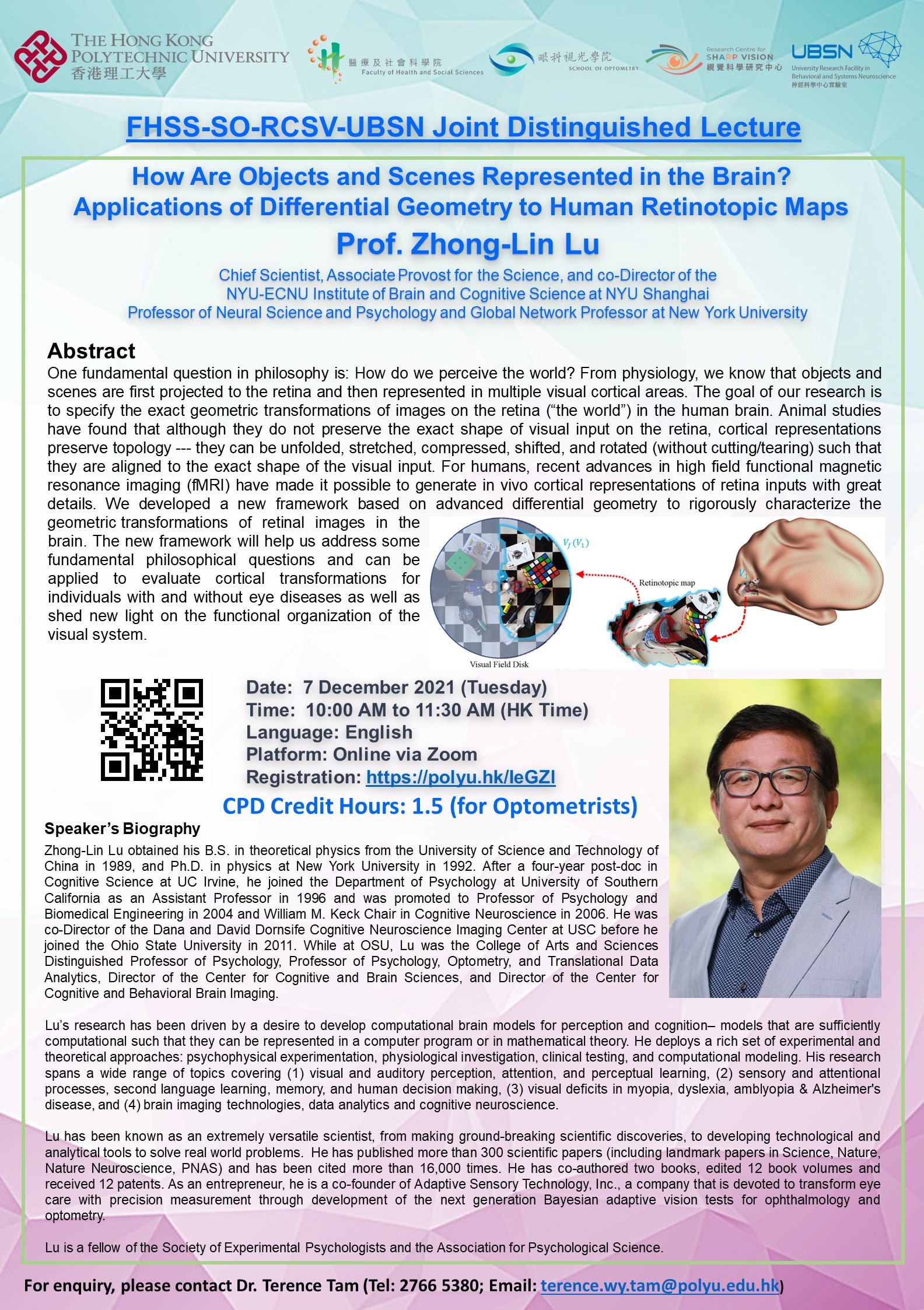FHSS-SO-RCSV-UBSN Joint Distinguished Lecture - How Are Objects and Scenes Represented in the Brain? Applications of Differential Geometry to Human Retinotopic Maps

-
Date
07 Dec 2021
-
Organiser
Faculty of Health and Social Sciences (FHSS); School of Optometry (SO), Research Centre for SHARP Vision (RCSV); University Research Facility in Behavioral and Systems Neuroscience (UBSN)
-
Time
10:00 - 11:30
-
Venue
Online by ZOOM
Speaker
Prof. Zhong-Lin Lu
Summary
Abstract
One fundamental question in philosophy is: How do we perceive the world? From physiology, we know that objects and scenes are first projected to the retina and then represented in multiple visual cortical areas. The goal of our research is to specify the exact geometric transformations of images on the retina (“the world”) in the human brain. Animal studies have found that although they do not preserve the exact shape of visual input on the retina, cortical representations preserve topology --- they can be unfolded, stretched, compressed, shifted, and rotated (without cutting/tearing) such that they are aligned to the exact shape of the visual input. For humans, recent advances in high field functional magnetic resonance imaging (fMRI) have made it possible to generate in vivo cortical representations of retina inputs with great details. We developed a new framework based on advanced differential geometry to rigorously characterize the transformations of retinal images in the brain. The new framework will help us address some fundamental philosophical questions and can be applied to evaluate cortical transformations for individuals with and without eye diseases as well as shed new light on the functional organization of the visual system.
Keynote Speaker
Prof. Zhong-Lin Lu
Zhong-Lin Lu obtained his B.S. in theoretical physics from the University of Science and Technology of China in 1989, and Ph.D. in physics at New York University in 1992. After a four-year post-doc in Cognitive Science at UC Irvine, he joined the Department of Psychology at University of Southern California as an Assistant Professor in 1996 and was promoted to Professor of Psychology and Biomedical Engineering in 2004 and William M. Keck Chair in Cognitive Neuroscience in 2006. He was co-Director of the Dana and David Dornsife Cognitive Neuroscience Imaging Center at USC before he joined the Ohio State University in 2011. While at OSU, Lu was the College of Arts and Sciences Distinguished Professor of Psychology, Professor of Psychology, Optometry, and Translational Data Analytics, Director of the Center for Cognitive and Brain Sciences, and Director of the Center for Cognitive and Behavioral Brain Imaging.
Lu’s research has been driven by a desire to develop computational brain models for perception and cognition– models that are sufficiently computational such that they can be represented in a computer program or in mathematical theory. He deploys a rich set of experimental and theoretical approaches: psychophysical experimentation, physiological investigation, clinical testing, and computational modeling. His research spans a wide range of topics covering (1) visual and auditory perception, attention, and perceptual learning, (2) sensory and attentional processes, second language learning, memory, and human decision making, (3) visual deficits in myopia, dyslexia, amblyopia & Alzheimer's disease, and (4) brain imaging technologies, data analytics and cognitive neuroscience.
Lu has been known as an extremely versatile scientist, from making ground-breaking scientific discoveries, to developing technological and analytical tools to solve real world problems. He has published more than 300 scientific papers (including landmark papers in Science, Nature, Nature Neuroscience, PNAS) and has been cited more than 16,000 times. He has co-authored two books, edited 12 book volumes and received 12 patents. As an entrepreneur, he is a co-founder of Adaptive Sensory Technology, Inc., a company that is devoted to transform eye care with precision measurement through development of the next generation Bayesian adaptive vision tests for ophthalmology and optometry.
Lu is a fellow of the Society of Experimental Psychologists and the Association for Psychological Science.




